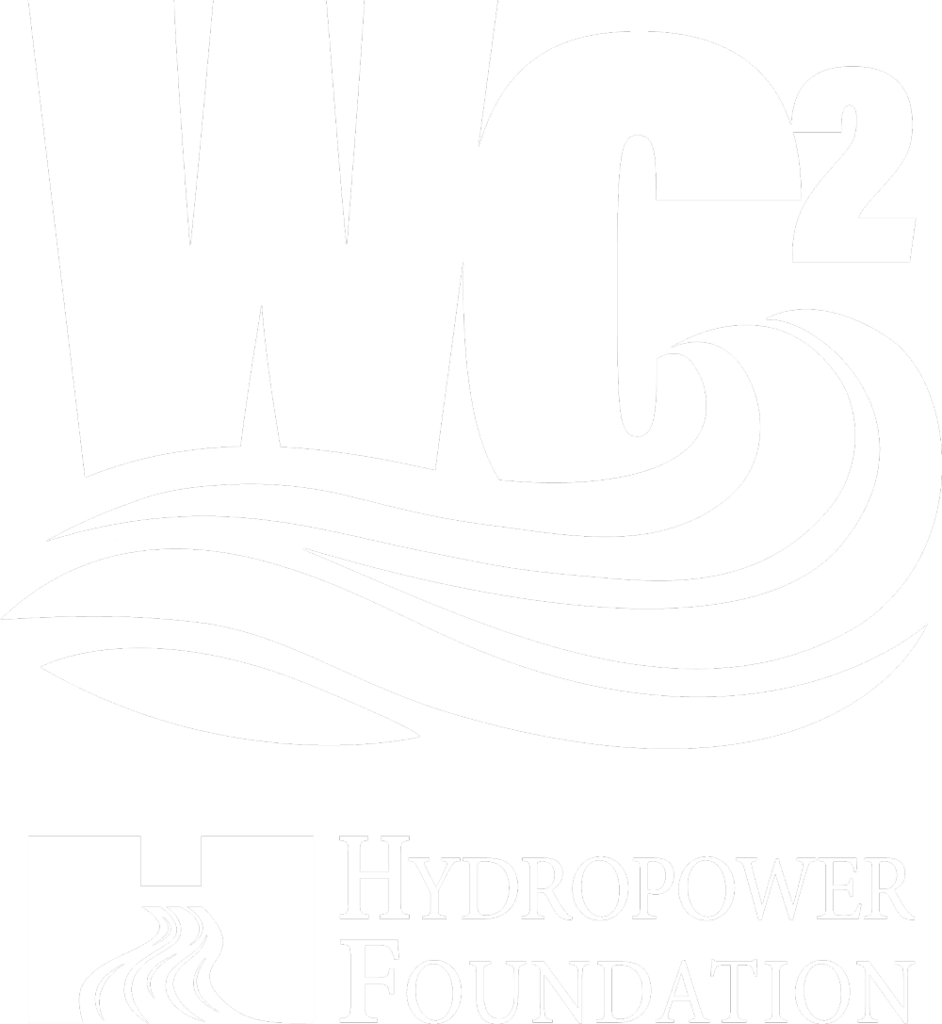What We Do
The Hydropower Foundation strives to be the preeminent provider of waterpower workforce development programs that bring education, environmental enhancement, diversity, equity, and justice by:
- Creating programs that provide access to job opportunities and mentoring in the waterpower industry for underrepresented populations, existing practitioners, and new entrants.
- Engaging with universities, colleges, and other pertinent organizations to provide waterpower related educational programs and create awareness of, and opportunities in, the waterpower industry.
- Providing schools, businesses, communities, and individuals with meaningful information on waterpower and the responsible management of our resources.
- Collaborating, sponsoring, or overseeing research consistent with our mission.
- Hosting networking events for the waterpower community that enable meaningful conversations and opportunities to build relationships.
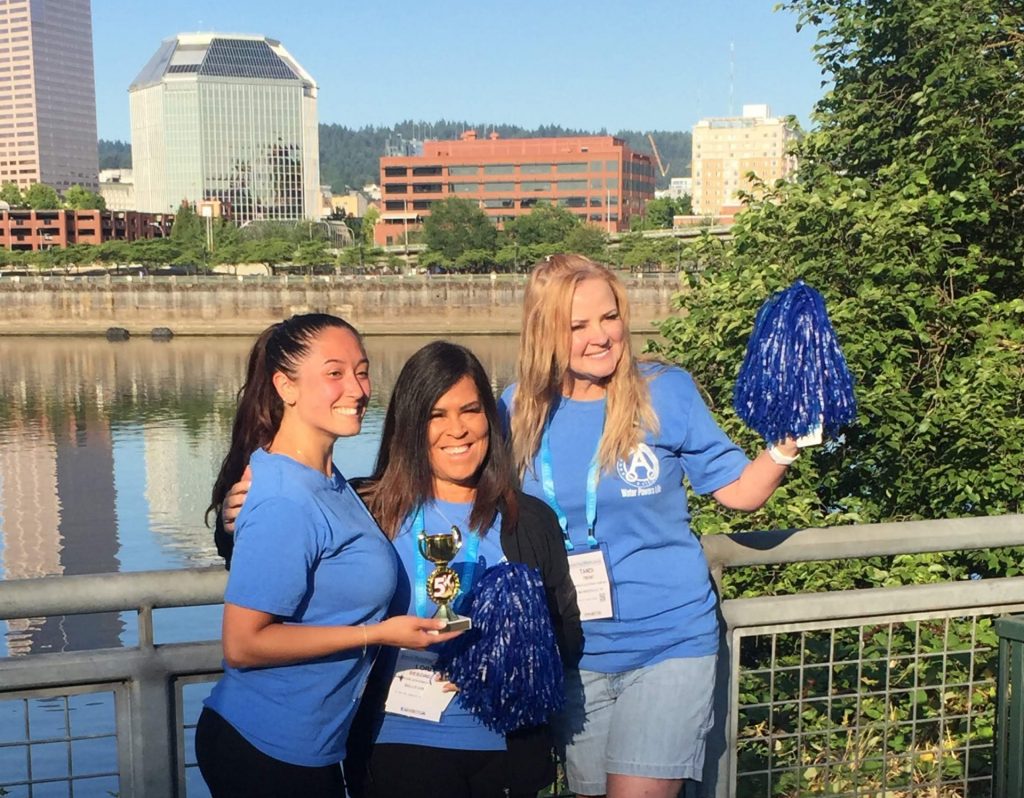

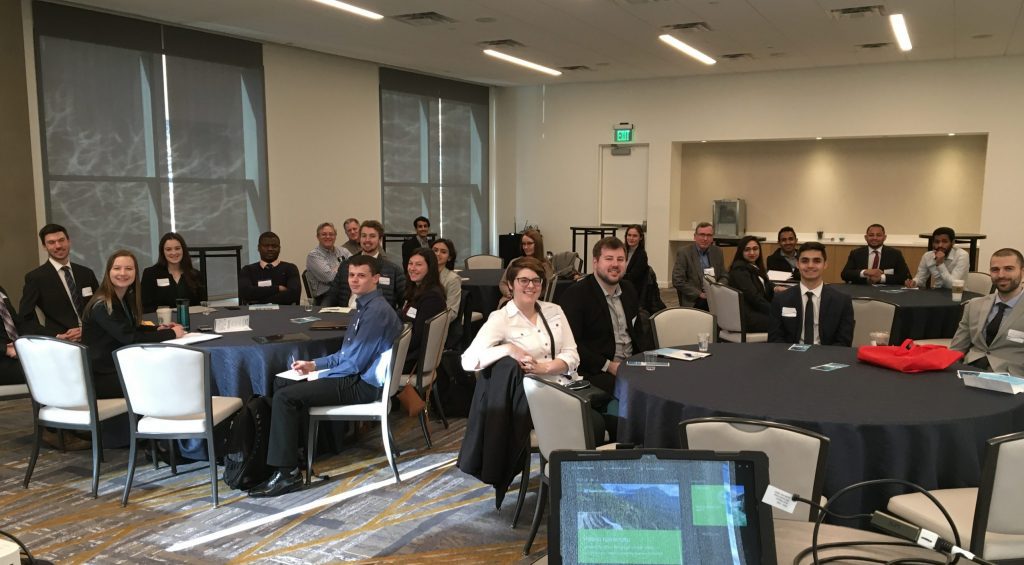
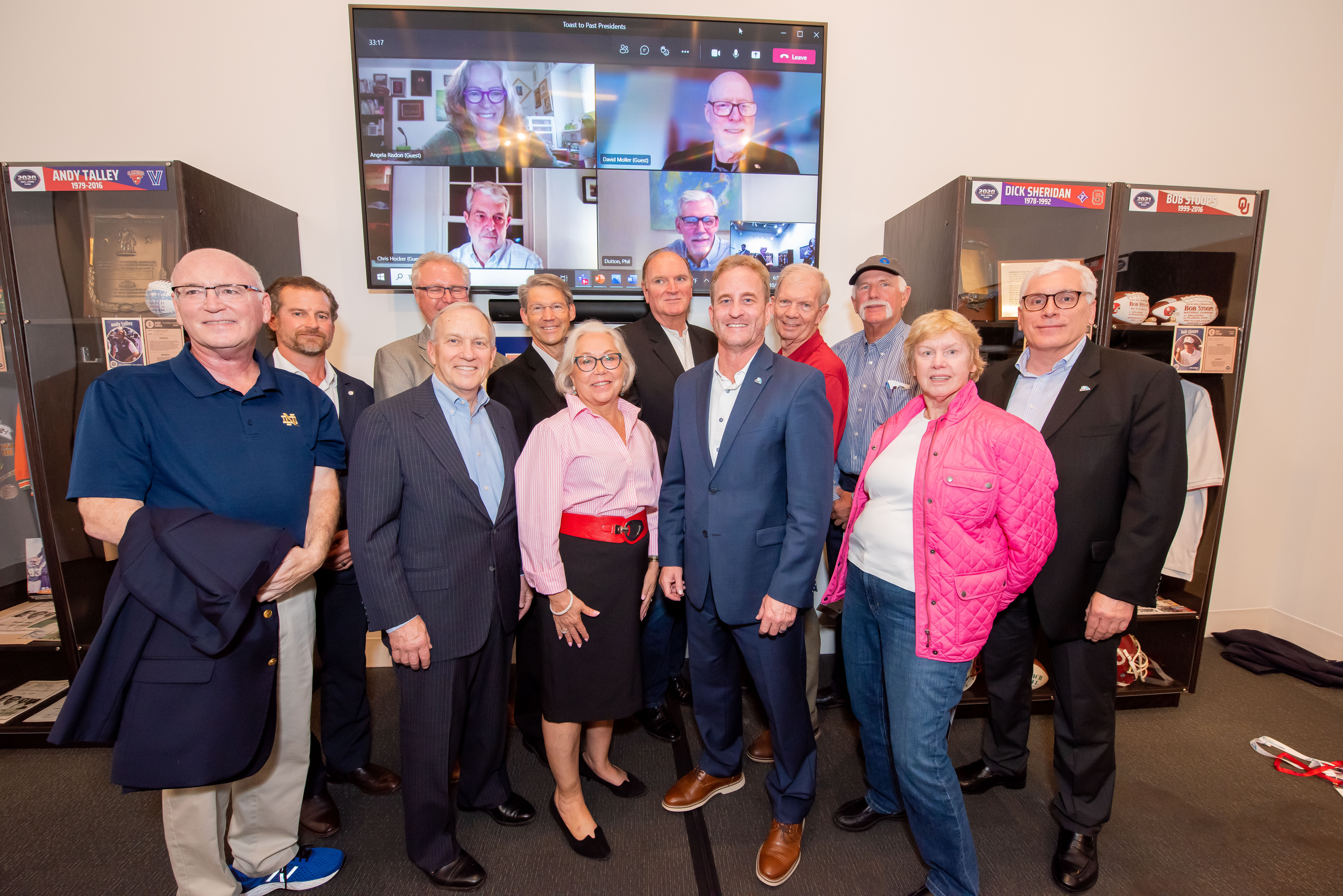
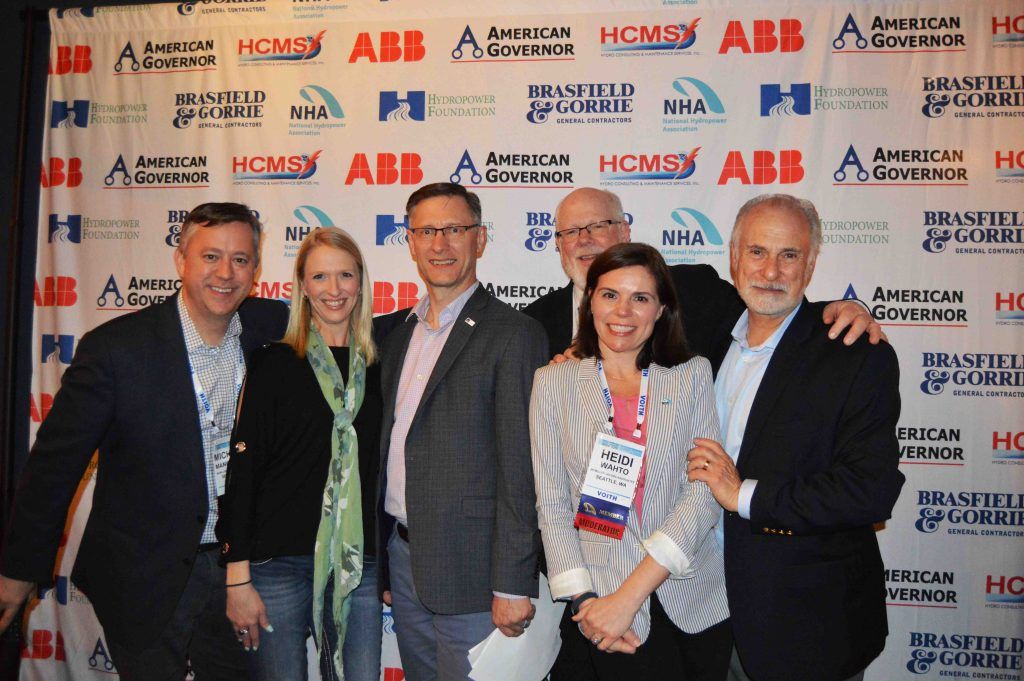
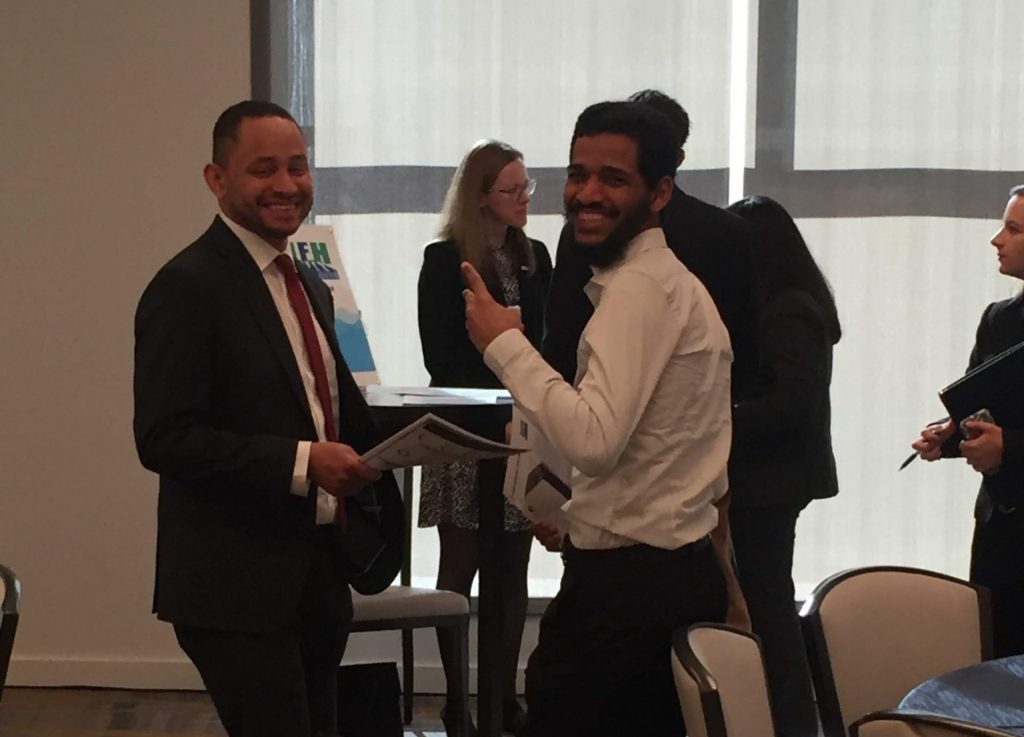
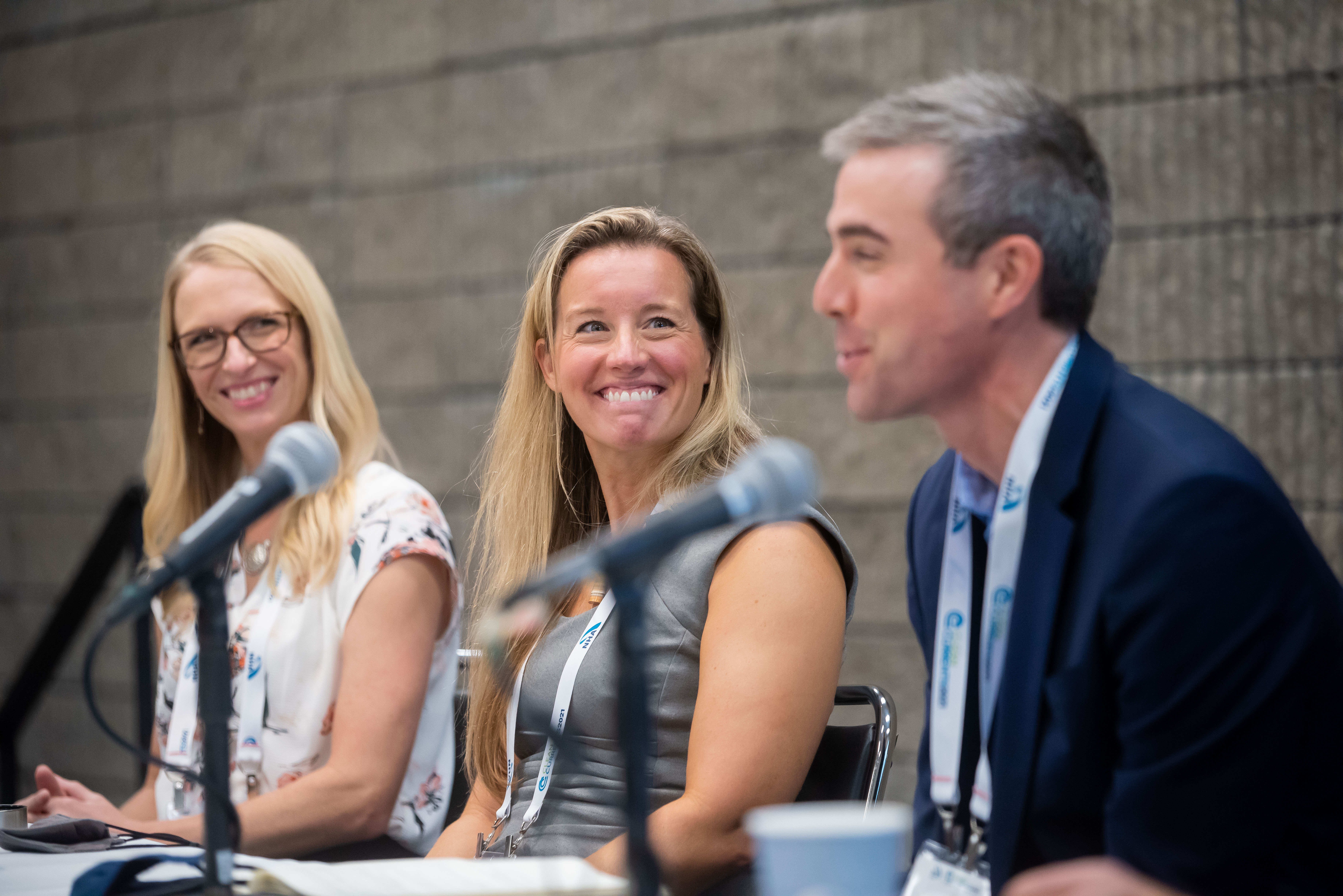
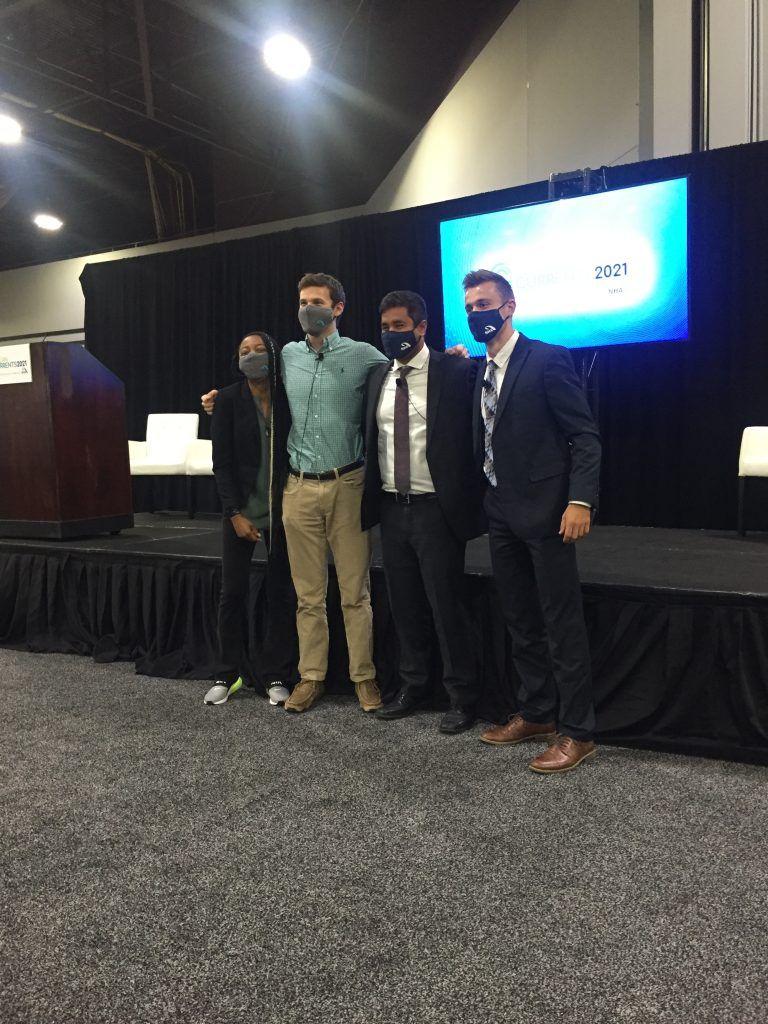
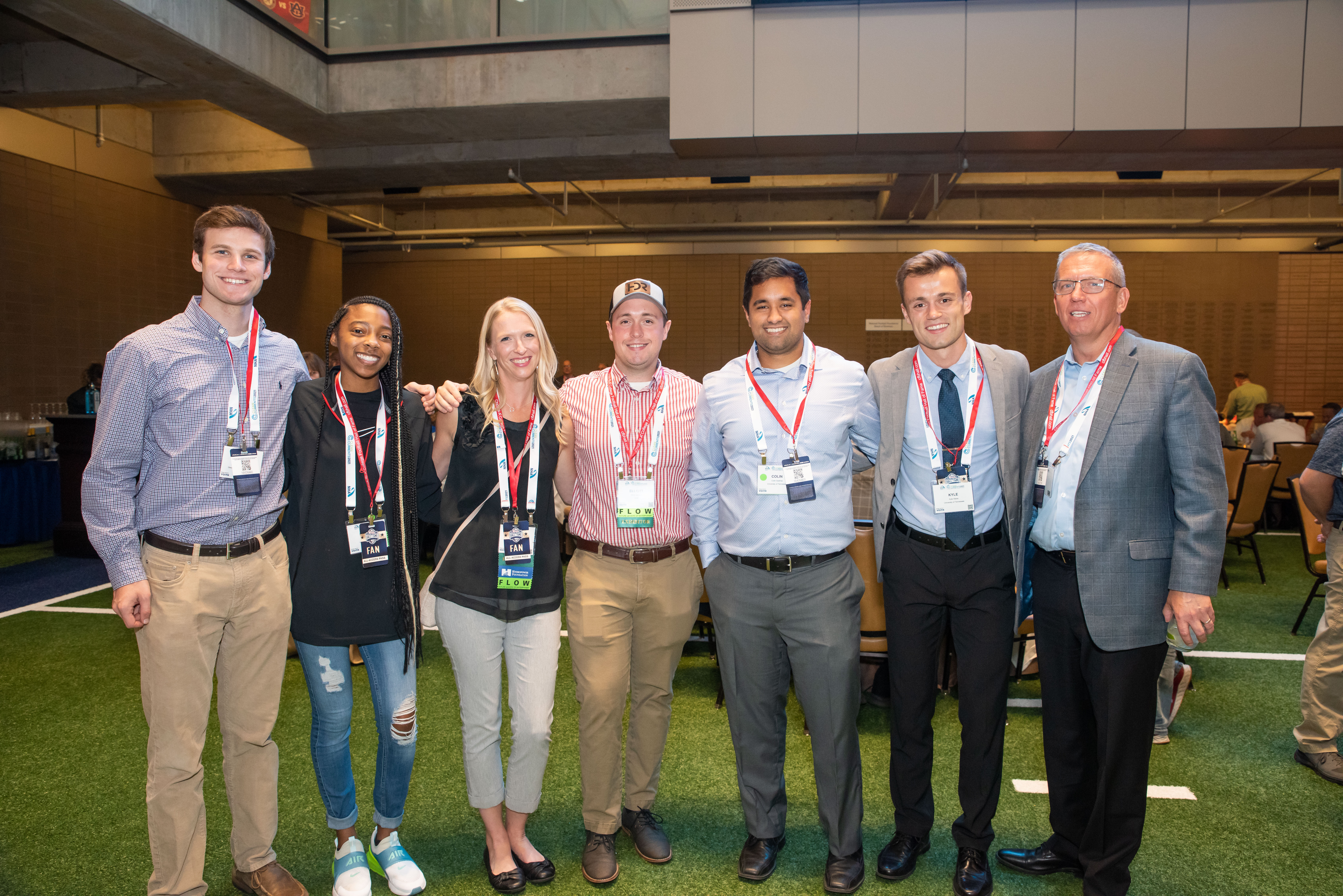

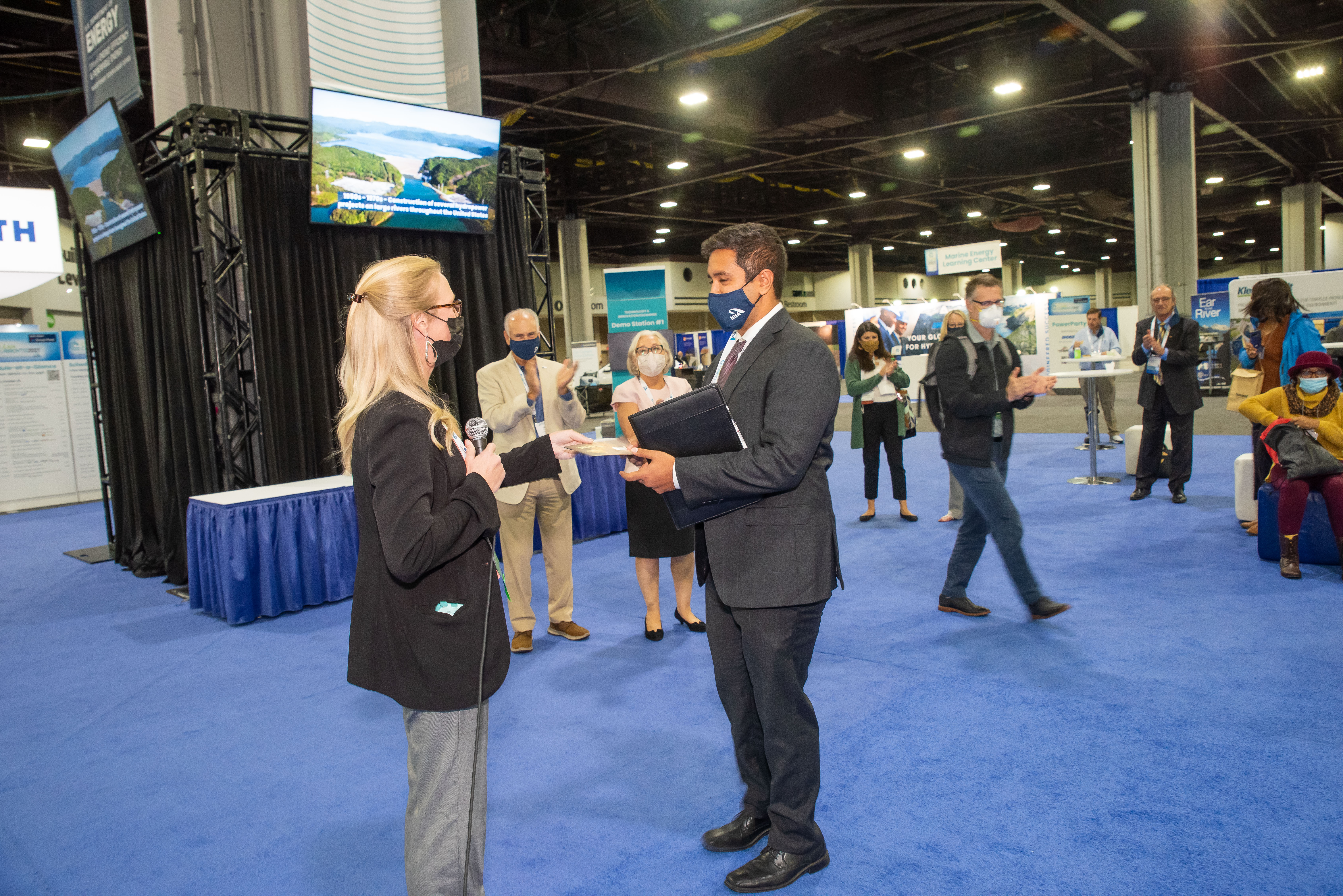
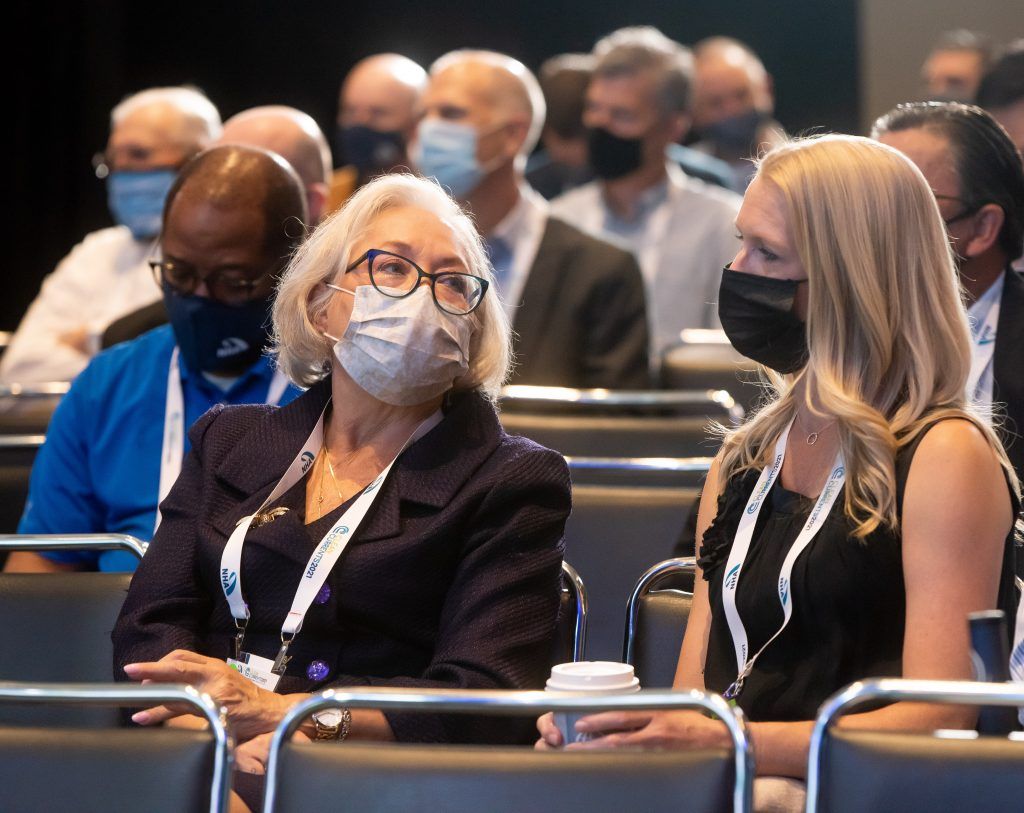
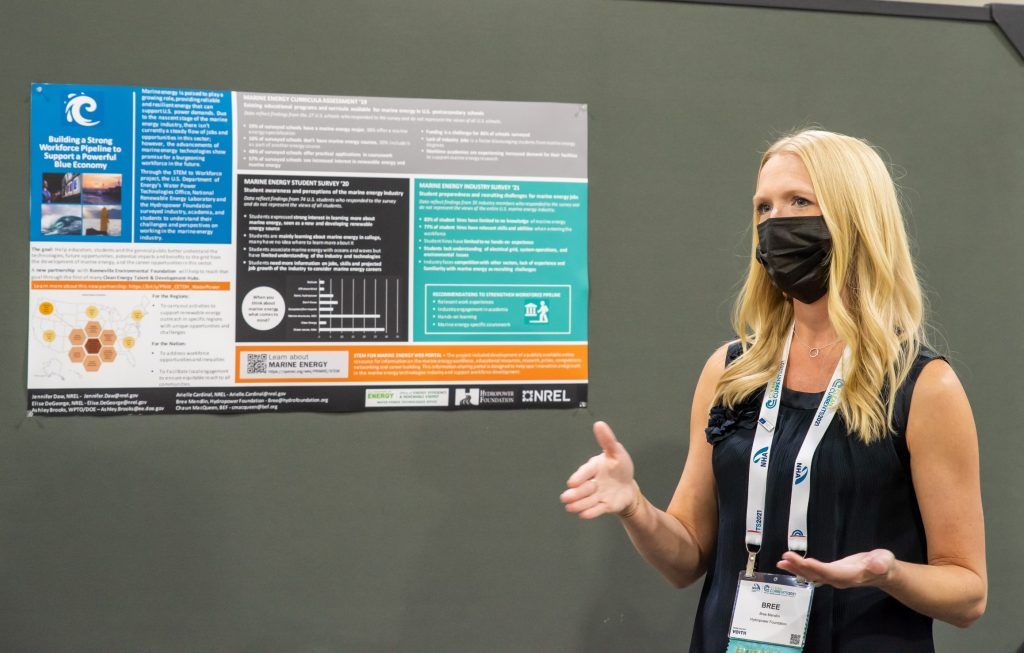
Current Initiatives + Past Accomplishments
The Hydropower Foundation program initiatives seek to strike a balance between industry research and educational outreach. Research efforts focus on facilitating activities that contribute to improving the delivery or use of hydropower and expanding awareness of career opportunities within this thriving industry. Educational outreach efforts are designed to help individuals and communities better understand the value of hydropower as part of the Nation’s energy mix.
The hydropower community is committed to an economically viable and environmentally sound future.
This program engages university students in addressing a hydro-related issue. Selected students – who have been nominated by their professors – are brought on site to a hydroelectric facility where they participate as team members in addressing a real-world problem. At the conclusion of the week-long exercise, the students participate in a critique where engaged professionals share the solution that had actually been implemented.
This continuing activity consists of a series of events aimed at educating and orienting faculty and students at universities and community colleges about the needs of and opportunities for employment within the hydropower community. To date the program has worked with over 200 students to attract them into careers in hydropower and given out 6 merit awards to recognize promising new leaders to the industry.
This run is a great way to see the city, meet fellow runners, bring a team of co-workers together for bonding and raising money for the Hydropower Foundation, which works to support hydro education, research and workforce development.
The Foundation provides a web-based service to support retirees in staying involved with the hydro community. Using the Hydro Expert Connection, individuals can make known their area(s) of expertise and their availability for providing services [akin to LinkedIn tailored to the hydro community].
The Hydro Power Contest was an opportunity for students and participants to demonstrate their ideas for turning water into power. The contest was conducted each year from 1991-2005 at the annual summer hydro industry conference. While created before the inception of the Foundation, the Foundation assumed the contest in the early 2000’s. To compete, each individual or team was required to construct a device that converted the gravity potential of water into mechanical power and then submitted the device for testing under competition conditions. During the competition, the mechanical power produced by each device and its efficiency were measured. Winners were awarded prizes, scholarships, and scholarly literature from various professional organizations.
Primary and secondary curriculum development for hydropower education. The Foundation contracted with the National Energy Education Development Project (NEED) to develop new materials and science kits. The contract included conducting three teacher workshops. Two workshops took place in Washington, DC, during the hydro industry conference in 2008 and 2010. Plans for one more workshop are underway.
This program has supported 73 graduate students in performing hydro-related research as part of their graduate studies.
Upon completing their studies, a majority of these students have accepted positions of employment within the hydro community, including jobs in government agencies (including national laboratories, regulatory and government power producers), power producing companies, equipment suppliers, and engineering consultancies.
The hydro industry, with a jumpstart from the Foundation, joined with the DOE and other federal agencies in an accelerated research and development program to create a new generation of fish-friendly hydro turbines that would minimize environmental impacts to aquatic life in our rivers and, at the same time, provide a more economical energy supply for consumers by increasing plant efficiency.
Two research and development forums have been held with partial support from the Foundation. The first was held 1992 and the second in 2001. In these forums groups of hydro industry professionals gathered together to consider and develop an agenda for future hydro industry research and development activities. Objectives included reviews of ongoing and planned industry research efforts, identification of specific research issues/topics to address and organizations that can support or undertake new research.
HPF joined with the Department of Energy and other federal agencies to develop a new generation of hydro turbines.
The Idaho Power Company (IPC) developed a model with Oak Ridge National Laboratory (ORNL) to assess the flow-related impacts of IPC’s Malad River Hydroelectric Project on rainbow trout. As a non-profit, charitable foundation, the Foundation was able to serve as the mechanism to fund this environmental research.
The Hydropower Foundation has announced the publication of the “New Pathways for Hydropower: Getting Hydropower Built—What Does It Take?” The purpose of the report is to identify technological innovations that will decrease the expense and time required to deploy new hydropower in the United States. This report identifies 31 technological ideas. Several of the ideas address the need to nurture hydropower-specific innovation and education. Although the focus of this report is new small hydropower, many of the ideas presented herein are applicable to hydropower development in general. The ideas are grouped into eight categories:
· Improved Tools for Siting, Prequalification, and Feasibility Determination
· New and Improved Design Tools—Guidelines and Standards
· Improved Access to Design-related Information—Online Toolboxes and Databases
· New Hydropower-Specific Education, Training, and Outreach
· Advanced and Improved Technology, Materials, and Manufacturing
· Standardized and Modular Designs
· New and Improved Electrical Standards and Practices
· Tools for Commissioning, Operation, and Maintenance
“The ideas in this report, if implemented, have the potential to greatly reduce deployment cost and time through efficient designs, manufacturing, permitting and licensing, installation, commissioning, operations, and maintenance,” said Deborah Linke, Executive Director of the Foundation. “This is an exciting compilation of ideas from an experienced group of well-regarded industry professionals with deep knowledge of what it takes to envision and complete a successful project,” she continued.
This report is part of the New Hydropower Innovation Collaborative (NHIC), a partnership between the Hydro Research Foundation and Oak Ridge National Laboratory (ORNL), with support from the U.S. Department of Energy Water Power Program. New hydropower presents a substantial opportunity for increased electric generation, improvements in grid security and stability, and increased economic development. The report is available on line on the Foundation’s website at www.hydrofoundation.org
Technological innovations are the subject of this report. Innovative policy alternatives will be addressed in a separate policy alternative report. The NHIC also includes development of a web-based technology catalog containing project-specific and vendor and technology information which will be useful to the new small-hydropower community.
The Hydro Research Foundation released a policy report, “Blue Gold: Building new Hydropower with Existing Infrastructure” which highlights how consensus policy federal and state policy changes can unleash substantial new development of hydropower utilizing existing water infrastructure.
The consensus policy recommendations from the Blue Gold report were developed during a 2014 meeting convened by the Hydro Research Foundation to discuss policy reforms needed to accelerate development of hydropower. The report’s recommendations have been supported by both the hydropower industry and the environmental community.
The policy reform recommendations from the Blue Gold report include the following:
Proposed Federal Executive Action
- Allocate a percentage of the DOE hydropower budget to distributed hydropower.
- Prepare a DOE distributed hydropower market status report.
- Prepare a distributed hydropower roadmap as part of the DOE hydropower vision report.
- Complete a nationwide resource assessment focused on distributed hydropower that could be developed using existing water distribution systems.
- Disseminate hydro policy best practice information.
- Streamline US Army Corps of Engineers permitting processes for hydro development so projects can complete federal approvals expeditiously.
- Increase federal procurement of hydropower by including distributed hydropower as an eligible resource type for federal agency procurement.
- Highlight distributed hydropower as an attractive compliance option under the EPA Clean Power Plan.
- Implement a FERC rulemaking to add existing dams to the type of projects under 5 MW eligible for the “regulatory off-ramp” created by the Hydropower Regulatory Efficiency Act of 2013 to include non-controversial distributed hydro projects which can meet criteria as determined by FERC staff for a National Environmental Policy Act (NEPA) Categorical Exclusion.
Proposed Federal Legislation
- Exclude small (under 5 MW) conduit hydropower projects from having to file with FERC for projects which entail no changes in water diversion from an existing natural waterway.
- Reauthorize the Energy Policy Act of 2005 Sections 242 and 243 hydro incentive payments program and provide ongoing appropriations.
Proposed State Action
- Treat distributed hydropower the same as other distributed renewable energy technologies in state renewable energy incentive programs.
- Include distributed hydropower as a compliance option in development of state Clean Power Plans.
- Coordinate Federal and State environmental and permitting processes for hydropower.
- Add hydropower as an eligible project type to existing state loan and grant programs for water infrastructure.
The Blue Gold policy recommendations build upon the success of recent federal hydro reform legislation. In August of 2013, two federal small hydropower reform bills were signed into law aimed at simplifying permitting requirements for hydropower: H.R. 267, the Hydropower Regulatory Efficiency Act, and H.R. 678, the Bureau of Reclamation Small Conduit Hydropower Development and Rural Jobs Act. Both bills were passed unanimously by the U.S. Senate and signed into law by President Obama.

